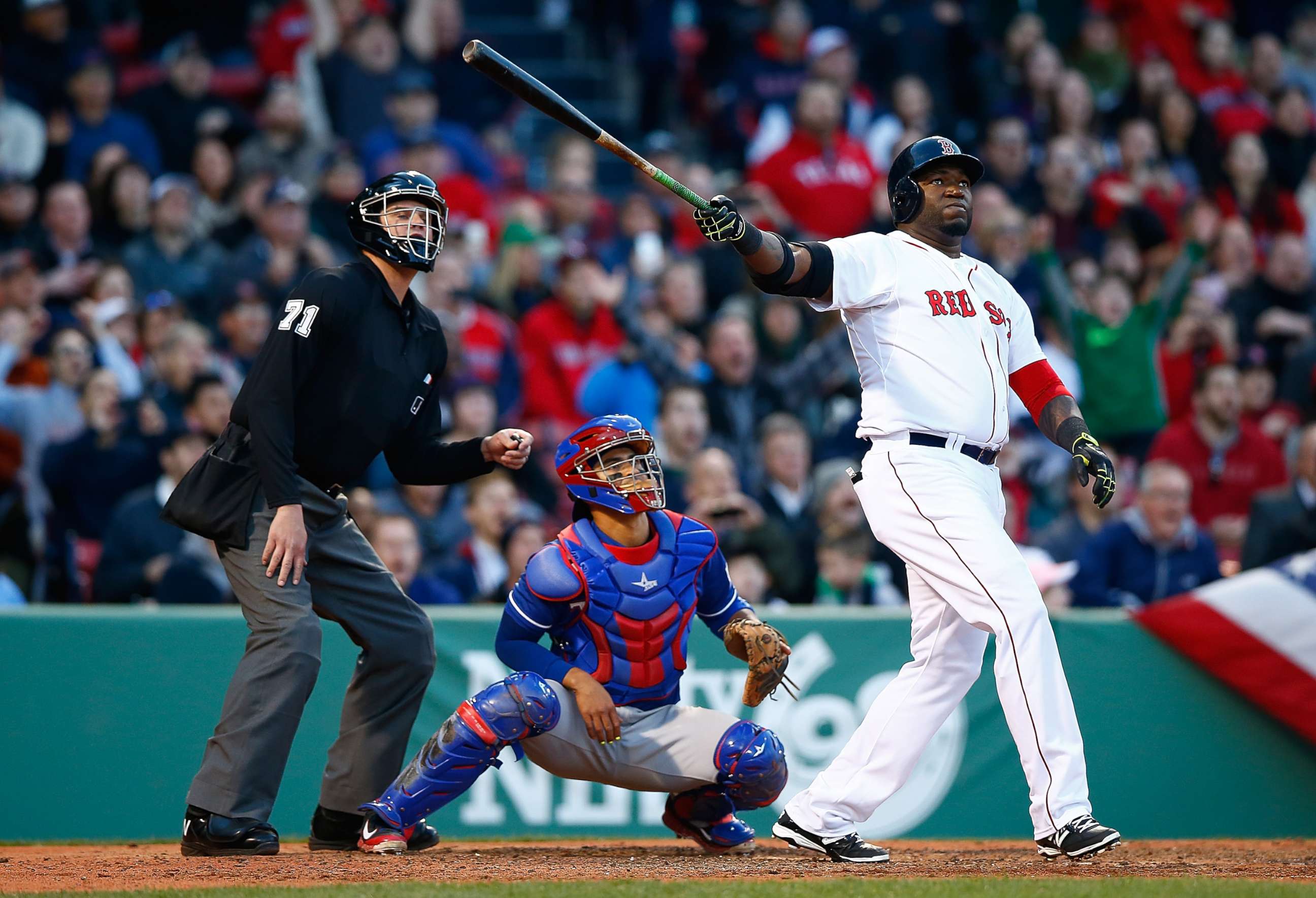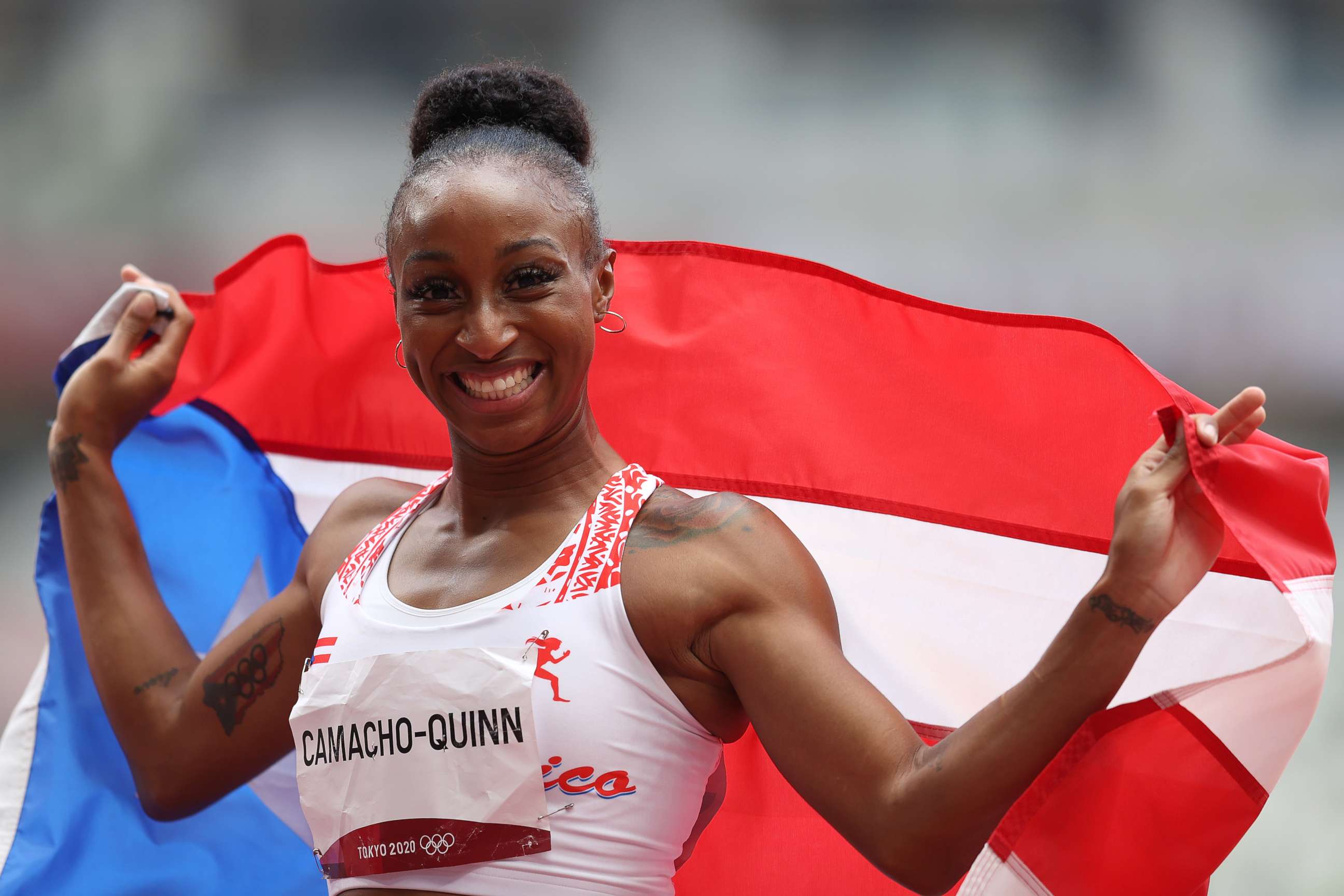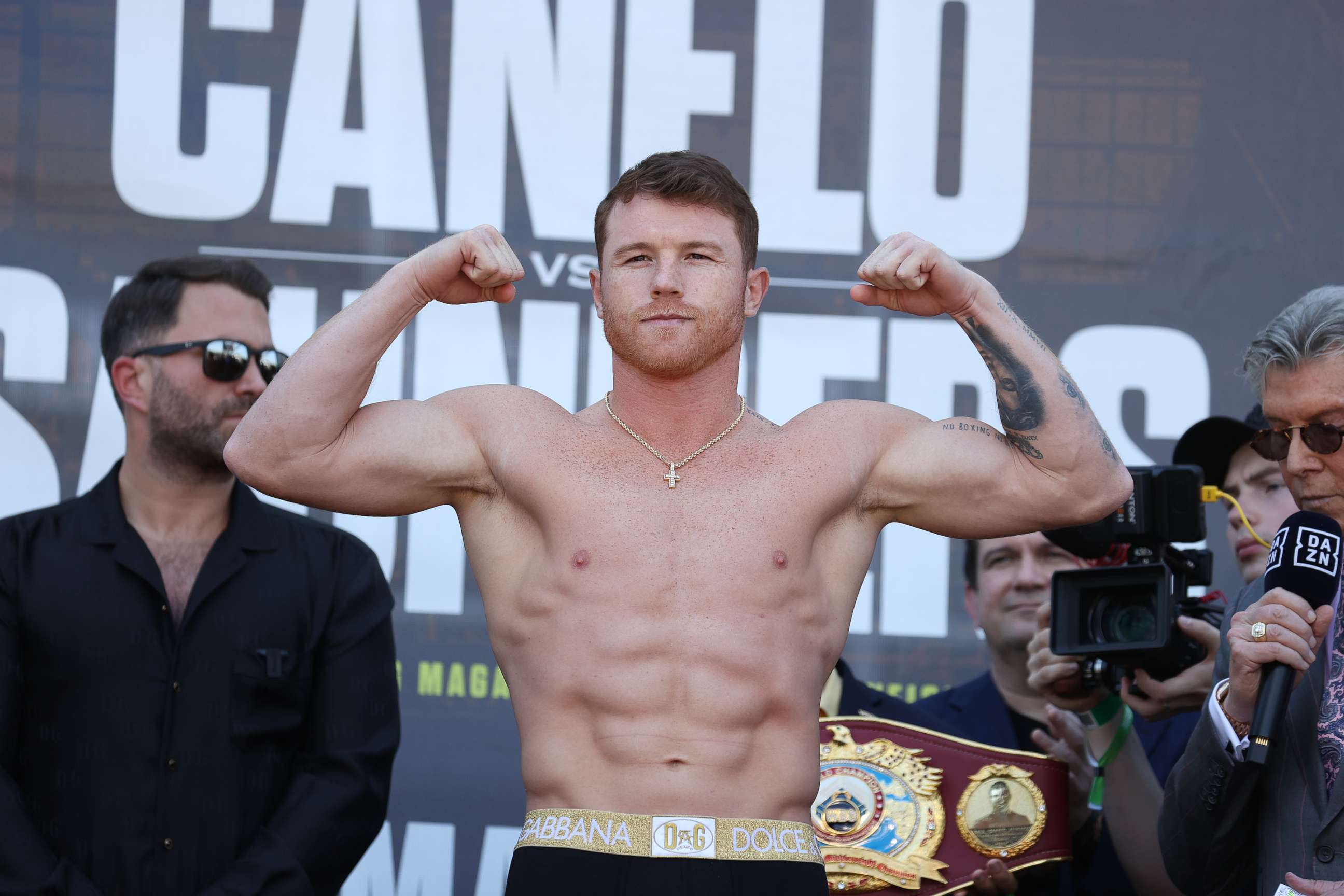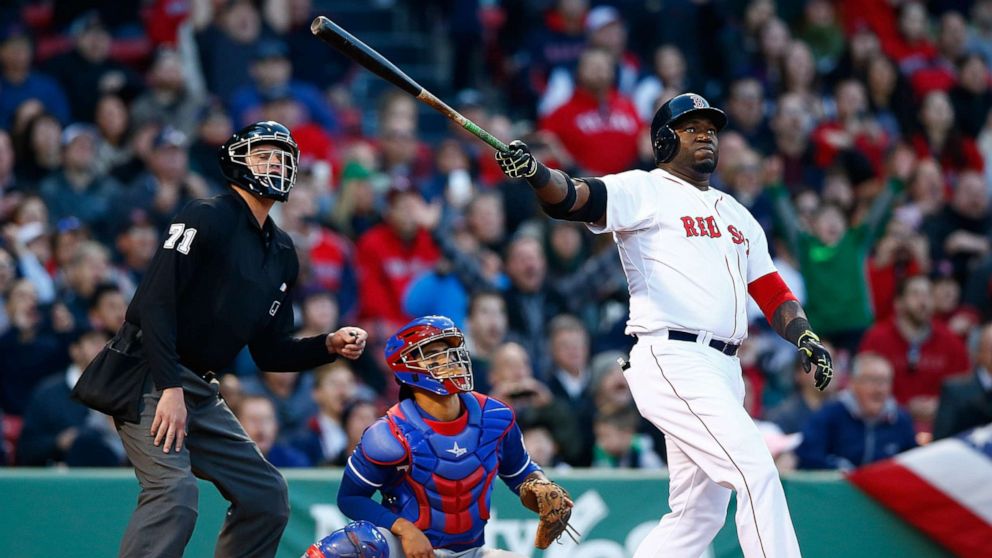Latinos in sports are drawing on their heritage to inspire others
From the Olympics to practically every major league sport, 2021 has been a year where top Latino athletes have led their franchises to huge victories, winning world titles and gold medals.
When they're not competing, some Latino athletes have also worked to advocate for their communities, And through it all, on and off the field, they've represented their heritage with pride.
“As a Latino, the minute life starts making sense for you, you know that things are not going to be that easy,” said three-time Major League Baseball World Series champion and 10-time All-Star David “Big Papi” Ortiz. “In the Latin culture, hard work and motivation and getting to know that you have to fight to get things is a part of our culture. I was never the guy that had anything handed to me. And I think that comes along hand-in-hand with being Latino.”

Like Ortiz, who was born and raised in the Dominican Republic, many MLB players come from several Caribbean and Latin American countries, such as Puerto Rico, Venezuela, Mexico, and Cuba — making baseball their pathway to the American Dream. In fact, since the 2016 season, every team at the major league level has been required to have a Spanish-speaking translator on its staff. To date, close to 2,000 players of Latin American descent have made it to the major leagues making up 25% the league’s talent.
“Latinos, we are hard-working people. We are people that come here with a mentality of putting our family in a better situation,” said Ortiz. “I come from the very bottom, and I know what my people are all about. And whenever I see Spanish people doing well, representing, [it] is something that definitely makes me very proud.”
That same pride Ortiz has with representing his heritage is mirrored by Olympian Jasmine Camacho-Quinn, who chose to represent Puerto Rico during the 2021 Olympic Games.
Born and raised in South Carolina to an African American father and Puerto Rican mother, the hurdler made what became a controversial decision to compete in the Olympics for Puerto Rico instead of the U.S. Her decision caused some to criticize her on social media, and some former Olympians suggested Camacho-Quinn was unqualified to compete for the island. She ended up winning a gold medal in the 100-meter hurdle.

“I just felt like a lot of it was racism, and I wanted to say things, but I’m realizing I'm in the limelight right now, and I can't say certain things,” said Camacho-Quinn. “But I was like, 'You know what, this doesn't change the fact that Puerto Ricans were really with me.'”
Her hyphenated last name speaks to her identity. Along with her hair and skin tone, Camacho-Quinn identifies as an Afro-Latina, a descendant of Latin America with African roots. It's an identity reflected in her physical features, which she says she's not only proud of but honored to have. She encouraged other people from "mixed" backgrounds to be just as proud.
“Who you are is who you are, and nobody can change that — literally nobody,” she said. "You have a right to represent both sides because that’s exactly who you are and what you are made of. Don’t be afraid.”
Camacho-Quinn is only the second Olympian representing Puerto Rico to bring back a gold medal. After winning in Tokyo, she and her family did a victory lap around Puerto Rico. Not only did its residents accept her as one of their own, but they celebrated her win with a parade — something the island had not been able to do since the tragedy of Hurricane Maria. Her victory brought not only happiness but a sense of togetherness despite the criticism she received.
“It's still hitting me. Like, that’s something that cannot be taken away,” she said. “That right there is making history. It means a lot.”
Just like Camacho-Quinn, boxing world champion Canelo Álvarez understands not only his power in the ring but the importance of his voice outside the ring against injustice, especially for Latinos.
“I’m in the position to have the power to speak for the rest; to tell people not to treat Latino or Mexicans differently, and I’m proving that,” he said in Spanish.

Unlike Ortiz and Camacho-Quinn, Álvarez describes himself as light-skinned and is often mistaken for being European rather than Mexican. He said that as a kid, he was bullied for his red hair, earning him the nickname “Canelo,” which means cinnamon in Spanish. Whether Latinos come from the islands of the Caribbean or the lands of Central and South America, many of them still share one thing in common: their language.
“I’m 100% Mexican. Even if I don’t look like one, I’m 100% Mexican and I’m proud of being one — being able to represent my country,” he said. “No matter if you’re light- or dark-skinned, or another color, having money or not, we’re all the same.”
Álvarez said that like any great athlete, they each experience their share of hurdles when it comes to the difficulties that life sometimes brings.
In the form of a hurdle, a curveball or a knockout, challenges come from every angle in life regardless of one's race or identity. But one thing we all have in common is the will to not give up.
“Yes, life is not easy, right? It’s not easy for anyone," Álvarez said. "But you have to keep going. You have to keep fighting because, in the end, the one who fights — who stands up — is the one who makes history."




